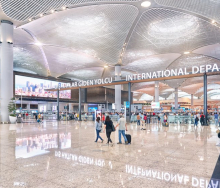The announcement that UIF’s Temporary Employment Relief Scheme (TERS) will not be extended beyond June 30, together with silence from government relating to when South Africa’s international travel ban will be lifted, is forcing travel businesses to move forward with further temporary personnel reductions and permanent retrenchments in order to enable their staff to access UIF benefits.
Owner of Sure Map Travel, Melissa Phillips, says her agency has been relying on TERS payments to support her employees during the last three months and the news that it will not be extended is devastating. She says the announcement is forcing her to make urgent decisions about temporarily or permanently laying off her staff. Melissa employs a small team of consultants who have been with her for decades and she says that if she has to resort to permanent retrenchments, severance packages will cost her several hundreds of thousands of rands at a time when her business has already gone 14 weeks without income.
“I feel that government’s announcement that travel agencies can ‘reopen’ is an empty gesture aimed to deflect attention from its responsibility to provide relief to our sector. It is like telling us that we can ‘reopen’ our shop but prohibiting sale of the majority of our stock, leaving us with no way to earn the income necessary to pay salaries,” said Melissa.
Md of XL Nexus Travel, Sailesh Parbhu, says he has made contact with the UIF Commissioner’s office to explain that it will be difficult for many agencies that serviced the leisure and international markets to reopen and that demand has been far lower than anticipated, even for the corporate agents who made the decision to reopen this month.
“Employers applied for TERS benefits on behalf of their employees by uploading a single file every month for all staff members and, despite this centralised application process, there were a number of delays with payments. Now that TERS is no longer the normal process of applications and employees will be required to apply individually, there will be further constraints placed on the system considering the delays and challenges the department has had over the past few weeks,” says Sailesh.
Ceo of XL Travel, Marco Ciocchetti, told Travel News that the goal of travel employers was to preserve jobs and that TERS had been set up to assist with this by reducing affected employers’ salary bills. The decision not to extend the programme was now having the opposite effect, forcing job cuts. Marco comments that TERS was opened to all sectors of the economy during the initial three-month period and he hopes the government will now consider an industry-specific scheme for the travel and tourism sector until borders are allowed to reopen.
“Retrenchment is an expensive option for employers, who have to pay out severance packages, but it is the employees who will suffer most from TERS being discontinued, at the end of the day,” says Marco.
Travel News spoke to ceo of the Tourism Business Council of South Africa, Tshifhiwa Tshivhengwa, who said that while the TERS programme had officially come to an end, TBCSA was now engaged in separate discussions with the UIF and its commissioner about measures that could be taken to assist out-of-work employees in the tourism sector.
“While the industry has been lobbying for TERS to be extended for 12 months for our sector specifically, the reality is that government simply does not have the resources to continue schemes like TERS. Employers have to realise that they are on their own now and that they have to see how far they can make the remaining funds at their disposal stretch to sustain their businesses. As the travel industry is such a labour-intensive sector, payroll is both a travel company’s best asset and one of its largest costs. Sadly, this means that the collateral damage of TERS ending will be livelihoods, and the longer our borders remain closed, the higher this cost will be,” says md of World Leisure Holidays, Ramesh Jeenarain.
Can employees who have been temporarily laid off claim UIF?
According to Asata’s Coronavirus Microsite, employees can claim UIF benefits if they are permanently retrenched or if employees are temporarily laid off for a certain period or if their hours are reduced.
“Employees can claim for the difference between their normal pay and what they earned during short-time and during temporary layoffs. The UIF formula of 38-60% of the UIF salary cap of R17 712 will be applied, and the employees’ period of contribution to the UIF fund, as well as the previous times they claimed from the fund will also be taken into account to determine what they will earn. The maximum UI benefit will be paid if the employer does not pay the employee during the shutdown period. However, if the employer pays part of the salary during the shutdown period, the UI benefit could be reduced by that amount,” says the Asata website.
See further details on the link below:
https://coronavirus.asata.co.za/faq-item/when-can-employees-claim-for-uif/
















